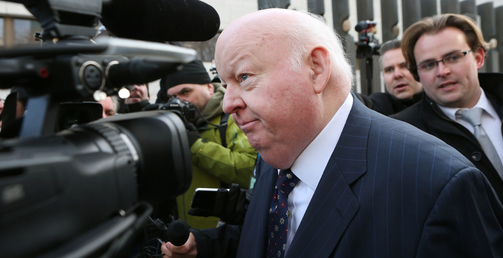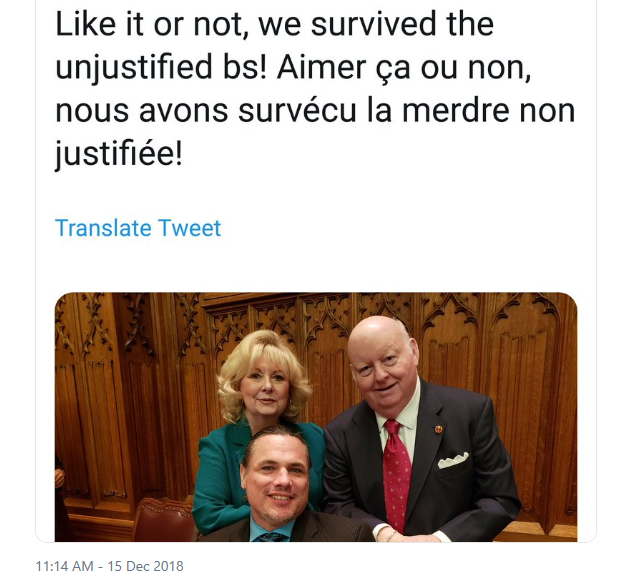
Suggested Offences With Mandatory Minimums
CC 46-48 (Treason)
CC 83.01-83.3 (Terrorism)
CC 151-154 (child Sex Offences)
CC 229-239 (Murder, 1st degree)
The case AGAINST Mandatory Minimums
-Judges are better able to look at a case and decide what is fair
-Judges are better able to decide what would be best for the public
-Judges are not subject to the whims of the population, given their jobs are secure
-In the event of very poor rulings, they can be appealed
-Mandatory minimums are very costly to the public
-Mandatory minimums result in “social costs” to the public
-There is no general deterrence
-Politicians in general cannot be trusted to pass good laws
-Politicians take so much power anyway, a separate judiciary is necessary
-Government should stay out of people’s lives as much as possible
-Given fraud and corruption within gov’t it is hypocritical for them to be passing such laws
-Judges are best able to “make that exception” when needed
-Mandatory minimums make it hard, if not impossible to make punishment fit the crime. It always must.
Articles Cited:
Research At A Glance
Mandator Minimum Penalties
Mandatory Minimums Unfair and Expensive
PBS Special on Mandatory Minimums
The Case IN FAVOUR OF Mandatory Minimums
-Politicians can (theoretically) be thrown out, judges cannot
-Although far from perfect, public input can help draft laws
-While judges are well intended, different perspectives can lead to widely differing sentences on cases of similar facts
-Consistency is necessary in applying sentencing principles
-If bad rulings occur and are not struck down, they can create ”precedent” for future bad rulings. Having set standards eliminates that possibility
-If not mandatory minimums, then guidelines (as is also the case in US/UK)
-Some offences are so bad they “require” prison time (as mentioned, it covered offences like murder, terrorism, child sex offences)
-Of course, this is not to imply that all, or even most offences should carry mandatory minimums
-The crimes being proposed for mandatory minimums are committed so rarely, that there would be ”no dragnet” of people.
-For certain offences, the well being of society needs to trump individual rights
-The Principles of Sentencing (see below) to see a need to balance both individual rights and society’s (the group’s rights)
-Items (a), (b), (c) put societal interest first, while (d), (e), (f) put individual interest first
What Does The Law Say?
Note: the information here is not necessary to prove that mandatory minimums are necessary, but rather to explain when the rationale behind sentencing.
Also the Bill C-42 was introduced to remove so-called ”conditional sentencing” for certain offences. The rationale being, if house arrest is inadequate, the probation would be even more so. In effect, it would ”create” mandatory jail sentences (though the length not specified).
Purpose and Principles of Sentencing
Marginal note:
Purpose
718 The fundamental purpose of sentencing is to protect society and to contribute, along with crime prevention initiatives, to respect for the law and the maintenance of a just, peaceful and safe society by imposing just sanctions that have one or more of the following objectives:(a) to denounce unlawful conduct and the harm done to victims or to the community that is caused by unlawful conduct;
(b) to deter the offender and other persons from committing offences;
(c) to separate offenders from society, where necessary;
(d) to assist in rehabilitating offenders;
(e) to provide reparations for harm done to victims or to the community; and
(f) to promote a sense of responsibility in offenders, and acknowledgment of the harm done to victims or to the community.
Objectives — offences against children
718.01 When a court imposes a sentence for an offence that involved the abuse of a person under the age of eighteen years, it shall give primary consideration to the objectives of denunciation and deterrence of such conduct.Objectives — offence against peace officer or other justice system participant
718.02 When a court imposes a sentence for an offence under subsection 270(1), section 270.01 or 270.02 or paragraph 423.1(1)(b), the court shall give primary consideration to the objectives of denunciation and deterrence of the conduct that forms the basis of the offence.Objectives — offence against certain animals
718.03 When a court imposes a sentence for an offence under subsection 445.01(1), the court shall give primary consideration to the objectives of denunciation and deterrence of the conduct that forms the basis of the offence.Fundamental principle
718.1 A sentence must be proportionate to the gravity of the offence and the degree of responsibility of the offender.
Restrictions on Conditional Sentencting, Bill C-42
R v. Proulx (2003) for conditional sentencing
“The requirement in s. 742.1 (b) that the judge be satisfied that the safety of the community would not be endangered by the offender serving his or her sentence in the community is a condition precedent to the imposition of a conditional sentence, and not the primary consideration in determining whether a conditional sentence is appropriate. In making this determination, the judge should consider the risk posed by the specific offender, not the broader risk of whether the imposition of a conditional sentence would endanger the safety of the community by providing insufficient general deterrence or undermining general respect for the law. Two factors should be taken into account: (1) the risk of the offender re-offending; and (2) the gravity of the damage that could ensue in the event of re-offence. A consideration of the risk posed by the offender should include the risk of any criminal activity, and not be limited solely to the risk of physical or psychological harm to individuals.
Once the prerequisites of s. 742.1 are satisfied, the judge should give serious consideration to the possibility of a conditional sentence in all cases by examining whether a conditional sentence is consistent with the fundamental purpose and principles of sentencing set out in ss. 718 to 718.2. This follows from Parliament’s clear message to the judiciary to reduce the use of incarceration as a sanction.
A conditional sentence can provide significant denunciation and deterrence. As a general matter, the more serious the offence, the longer and more onerous the conditional sentence should be. There may be some circumstances, however, where the need for denunciation or deterrence is so pressing that incarceration will be the only suitable way in which to express society’s condemnation of the offender’s conduct or to deter similar conduct in the future.
Generally, a conditional sentence will be better than incarceration at achieving the restorative objectives of rehabilitation, reparations to the victim and the community, and promotion of a sense of responsibility in the offender and acknowledgment of the harm done to the victim and the community.
Where a combination of both punitive and restorative objectives may be achieved, a conditional sentence will likely be more appropriate than incarceration. Where objectives such as denunciation and deterrence are particularly pressing, incarceration will generally be the preferable sanction. This may be so notwithstanding the fact that restorative goals might be achieved. However, a conditional sentence may provide sufficient denunciation and deterrence, even in cases in which restorative objectives are of lesser importance, depending on the nature of the conditions imposed, the duration of the sentence, and the circumstances of both the offender and the community in which the conditional sentence is to be served. A conditional sentence may be imposed even where there are aggravating circumstances, although the need for denunciation and deterrence will increase in these circumstances.
No party is under a burden of proof to establish that a conditional sentence is either appropriate or inappropriate in the circumstances. The judge should consider all relevant evidence, no matter by whom it is adduced. However, it would be in the offender’s best interests to establish elements militating in favour of a conditional sentence.
Sentencing judges have a wide discretion in the choice of the appropriate sentence. They are entitled to considerable deference from appellate courts. Absent an error in principle, failure to consider a relevant factor, or an overemphasis of the appropriate factors, a court of appeal should only intervene to vary a sentence imposed at trial if the sentence is demonstrably unfit.”
R v Proulx makes a pretty compelling case in favour of “conditional sentencing” a.k.a. “house arrest”. This case is recognized and relied on when handing down sentences. Many defense lawyers argue that conditional sentencing would better serve everyone (in most cases) than physical prison.
The restrictions that came from Bill C-42, however, means that certain offences are no longer eligible for conditional sentencing. This means that Judges will have to choose jail sentences, since probation would be considered unfit.
Overall, a very interesting topic to cover.





